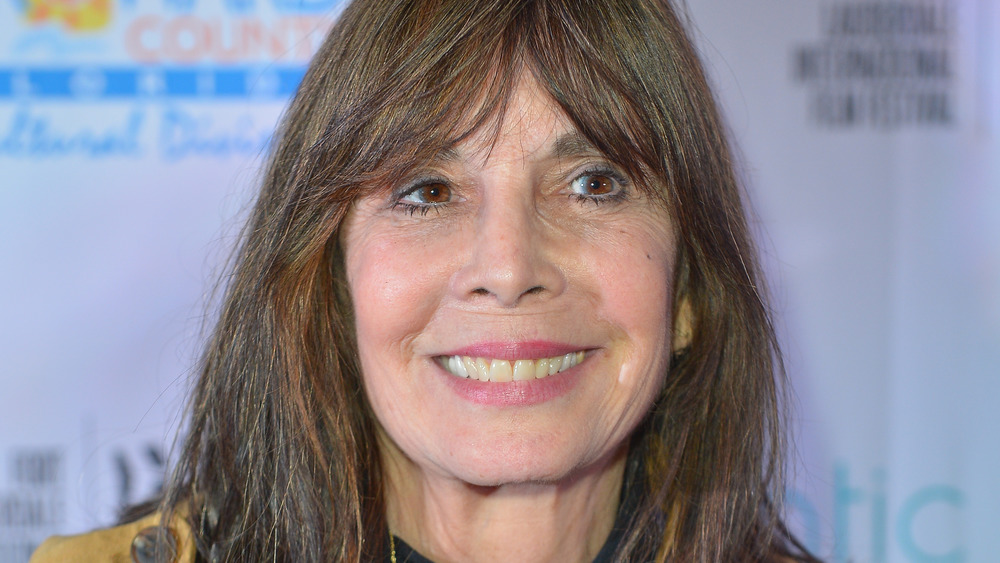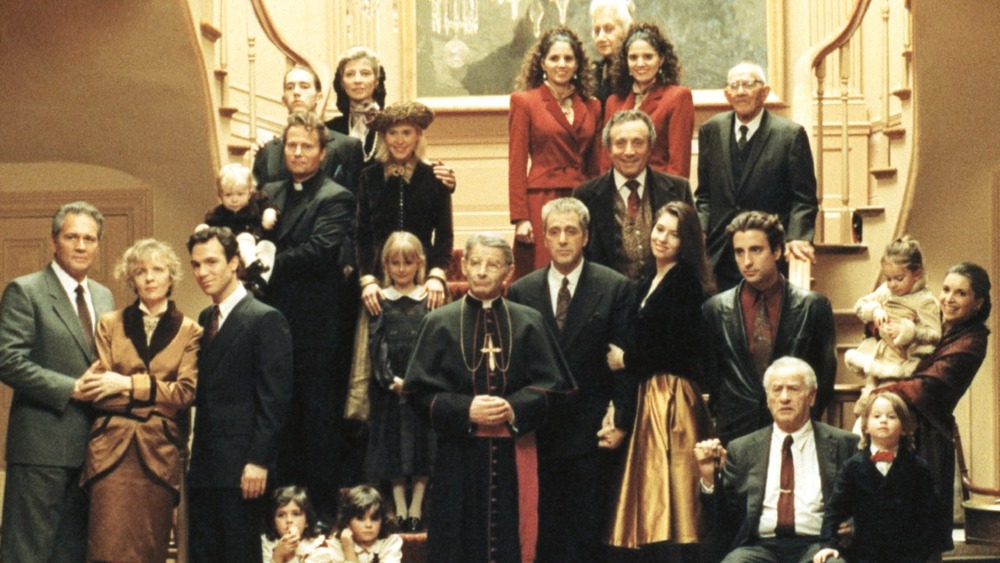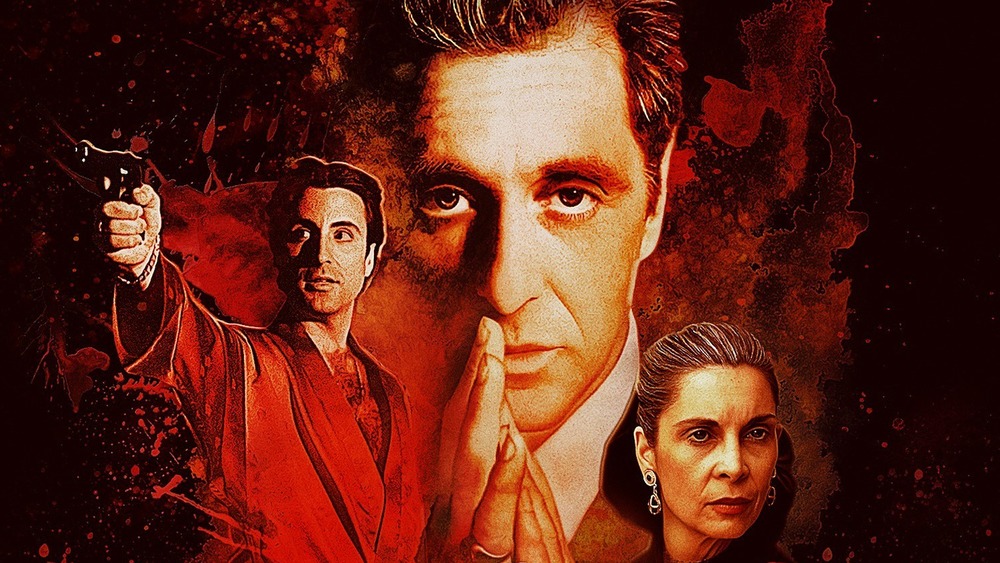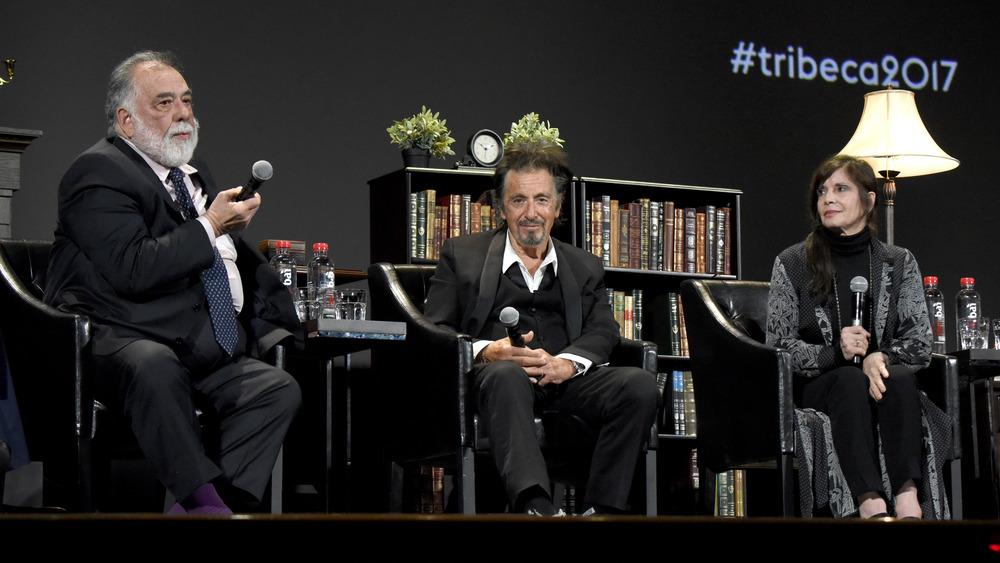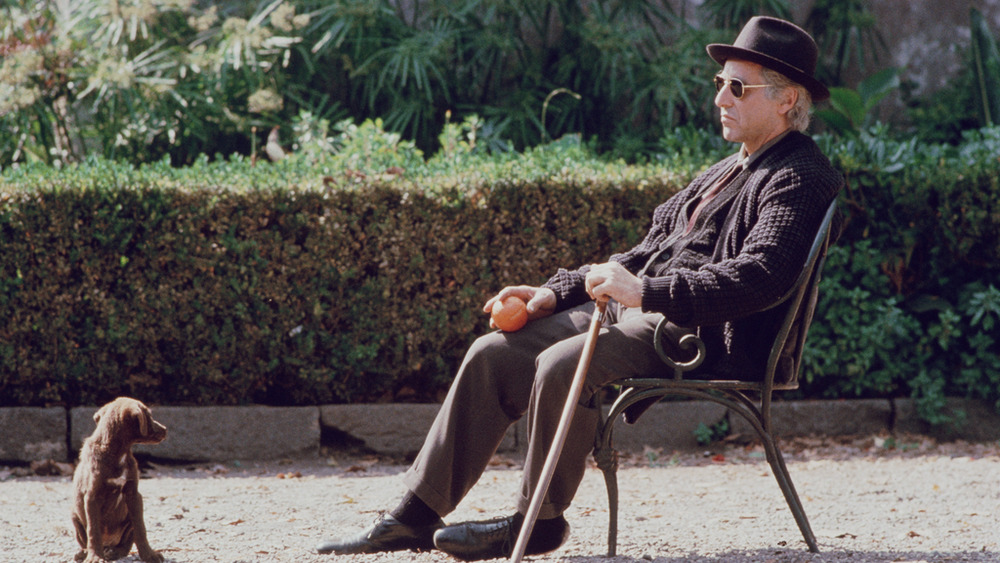Talia Shire Talks The Godfather Coda, Rocky, More - Exclusive Interview
The Godfather Part III is back with a new beginning, ending and alterations in between with The Godfather, Coda: The Death of Michael Corleone — and one of the Godfather trilogy's major players, Talia Shire, couldn't be more enthused.
Shire, of course, made iconic the pivotal role of Connie Corleone Rizzi, one of the tragic figures in the saga who suffers a deep, personal loss at the hands at her brother Michael (Al Pacino) in the first Godfather film; finds her life in a tailspin in The Godfather Part II; and lands in The Godfather, Coda with the strength and fortitude of her late father Vito (Marlon Brando) as she fiercely defends the Corleone family's honor.
While The Godfather, Coda — now playing in limited release in theaters nationwide, and available via on Blu-ray and video on demand — was re-edited by Coppola, the core of the film remains the same. Shot 16 years after the middle chapter in the trilogy, Coda finds Michael, now 60 years old and wracked with guilt over his life of crime — specifically ordering the execution of his older brother Fredo (John Cazale) in The Godfather Part II — seeking to make the family's business affairs legitimate. The transition, however, is far from smooth: A $600 million business deal involving the Vatican and a real estate conglomerate is under intense scrutiny, and Joey Zasa (Joe Mantegna), a gangster who's taken over the Corleone family's old territory in New York City, is having issues with Michael's nephew Vincent Mancini (Andy Garcia).
The illegitimate son of Sonny Corleone (James Caan), Vincent has the same fiery demeanor as his late father. And while Michael is resistant to wild ways, Vincent is adamant about keeping the family's heavy hand in play to combat their enemies — and he's got the full support of his Aunt Connie. Making matters more difficult is Vincent's complicated relationship with Michael and Kay's (Diane Keaton) daughter Mary (Sofia Coppola), who has emerged as the new face of the legitimate Corleone family's charity organization.
In an exclusive interview with Looper, Shire — who in real life is the younger sister of Francis Ford Coppola — discussed her role in The Godfather, Coda, and some of the creative changes that were made for the redux. Shire also talked about another iconic role of hers: Adrian, the wife and backbone of Rocky Balboa (Sylvester Stallone), the rags-to-riches boxer in the Rocky film series.
Talia Shire channeled the essence of Marlon Brando for The Godfather, Coda
Hi, Talia, nice to see you. You know, we've talked a couple of times prior to this — once for the 25th anniversary of Rocky, and then I believe for the Blu-ray release of The Godfather trilogy.
You were a mere boy, and I was a mere girl. [Smiles]
Getting to The Godfather Coda, The Death of Michael Corleone — congratulations. I can't imagine being a filmmaker trying to lock in that final cut. And obviously there's a temptation to go back and tinker with it. I mean, George Lucas has showed that to us with the Star Wars films, and Francis showed that to us with Apocalypse Now. I'm wondering if there's any point in the last 30 years where he came to you and said, "Talia, you know what, I've been thinking about re-editing this. I want to change things around a bit." Do you recall at any specific point where that conversation happened?
No, but I think Francis and I have a great subtext, so we don't always speak about things... But I don't know if you saw his Cotton Club. Did you see that?
It's been a while, but yes.
Well, he went back and touched that up and brought it to a real state of perfection. So, when he did that piece, I knew that he was also going to do the same thing with Godfather III because he wanted to set that right... I think he was very rushed trying to get the film out for a certain release date, so he hadn't gotten all of the pieces. So this was an exciting opportunity. And you could screw a thing up, too. I do that with my cooking, thinking, "Oh, God, I ruined the thing. Don't go back." But I think he really framed it correctly this time.
Well, you're right about not screwing things up, I know there were people like Andy Garcia who said "I didn't see anything wrong with the first cut." But talking about The Godfather II in our last conversation, one thing that I found really interesting about that was we talked about that final scene in the film, that dinner scene, when you said, "I could feel that presence of Brando, even though he wasn't even there for filming." So since the Godfather trilogy's entire story is rooted in the character of Vito Corleone, I'm wondering if Brando had that same sort of presence over the third film without being there.
He certainly did. And by the way, that was true, what I told you when we shot that last scene. I thought he might come [into the dining room], you know? It didn't seem that he wouldn't. I think for Connie, in many ways her evolution [in the third Godfather film] is addressed as the matriarch or the mother, but she assumes [Don Vito's role instead], because I think there's a lot of victimization in her life, and tragedy. She does not want to see this family end... I think Connie assumes a lot of the father. So in a way, Brando's essence was in my heart as an actor. I missed my father. When you miss your father, you reenact your father. So Brando was very much with me.
The Godfather, Coda completes Connie's story arc
The greatest part about this third film for you, Talia, is that it really completes a great arc where Connie ends up as Vincent's only ally. Obviously, Michael wants to go legitimate, but Connie knows that you need somebody strong like Vincent in order to protect the family. But the interesting thing about it was, when I was watching this film, I was thinking, "You know what? Connie has that strength, too. And in a sense, Connie is the Don." Had you ever looked at it that way?
I did the role with my hair pulled back — that's Marlon. Connie loved her father. And in this piece, I think you'll see the symmetry between Connie and Mary, and Sofia and myself. They're both daughters of very powerful men. One realizes through an illusion that she wants to keep [the family] going by being like her father, and the other one is very sacrificed in her exploration of "Dad. Who were you before? Were you married before?" So the two women really are one in a way.
You know what I find interesting about the film as far as Connie is concerned, because I watched the original right before I watched Coda in six-hour viewing window just a couple of days ago —
You did?
Yes. Oh yeah, absolutely. I wanted to immediately embrace what had changed in the new version of the film. But what I find interesting is the scene in the chapel after Michael is hospitalized, you meet with Vincent, you meet with Al Neri [Richard Bright] and you issue the order for Vincent to hit Joey Zasa. But in the new one, that scene is gone.
That's gone. Yes.
And I was thinking how I missed that scene being taken out for Coda because it's a great scene for you. At the same time, I can see what Francis was doing because now there's that element of surprise coming up where all of a sudden you realize, "Wow, Vincent really is going to finally take things in his own hands as far as taking out Joey Zasa."
Yes, because Vincent is a kind of wild energy in this one. He's wild. When Michael says "Just when I thought I could get out, they pull me back in," [you see that] it's Connie who does not want redemption... This is what makes Francis so great, [because you realize Michael is] going to redeem himself. He really wants out. He is Oedipus at the three roads... This guy isn't going to go that place. So instead, there's Connie working on [retribution] and you feel that Vincent [knows what I want] without me saying, "Do that hit." You feel Vincent's raw energy. He didn't have a father. And you see Connie in many ways as his father.
You know what's great about seeing a film like this again, is that you come to appreciate performances more after a certain amount of time — especially Andy Garcia's performance. He was ferocious in this movie. What an incredible performance.
He's a force of nature. He is Jimmy Caan gone wild. But he had no father, and that's why I feel Connie is the father. I agree with you, and watching it this last time [you see] that kind of wild charisma that was there.
Talia Shire says the screening of Coda was very emotional
I know you screened the film with Al Pacino and a bunch of other folks from the cast.
I called my sons and I said "I went to Paramount. I was sitting in the great Paramount Theater in darkness. There was Diane, a couple rows ahead of me, there was Al, and George Hamilton." George is very good in it, by the way. Andy Garcia was there too. When the Godfather title came up [on the screen], I could hear Diane crying in the theater. After the movie, the lights went on and we were in the lobby looking at each other. All this time had gone by, right? And it was quite remarkable. I think what I have to tell you is I felt a great sense of love and respect for my fellow actors all these years later. And I felt Al's performance was quite stunning, you know?
You mentioned George Hamilton and I'm glad you did because again, it's another performance that I've really come to appreciate. I thought he was terrific in the film. But — and this is not a knock on George by any sort of means — did you all miss Robert Duvall?
I think as actors, we all certainly missed Robert Duvall. However, I think George did a lovely job. He was handsome and courtly. He was the face of the family. This tall, interesting man. And I think he did an excellent job. By the way, if you look at his other works, his Zorro and so forth, he is a really talented man.
A profound parting image
Now that you've seen this reedited version of The Godfather III and how it can make such an enormous difference to the film, I'm wondering if you would object to Sylvester Stallone — in the place of the late John G. Avildsen — to revisiting any of the Rocky films to retool them? Would you be okay with that or do you think they're perfect as they are?
I think maybe Sylvester has been retooling one of those. I heard that. I can't say that's true. But in terms of The Godfather III, Francis felt he didn't have the time to land it in that mythological place that deals with redemption. And for me, the last scene [in The Godfather, Coda], I have to tell you — where you have Michael in this garden — it's purgatory. He's never going to leave this garden because I don't know where this garden is. Do you? And so he found a very profound last image, and again, we were crying in the theater... film is interesting because it's plastique. You can do that. So I'm always up for whatever transformations happen.
I loved you so much as Adrian in the Rocky films, and personally I would have loved to have seen you in Creed, but —
Me too. Absolutely, me too.
But I'm wondering if you agree that Adrian's death became the best creative decision for the film, because all of a sudden her presence loomed over everything in the movie much in the way that Brando's character loomed over The Godfather films.
Yes. You're right.
What's your thought on that decision, to have Adrian die?
It was an epic love story — Adrian and Rocky — so it worked. It was a good decision.
